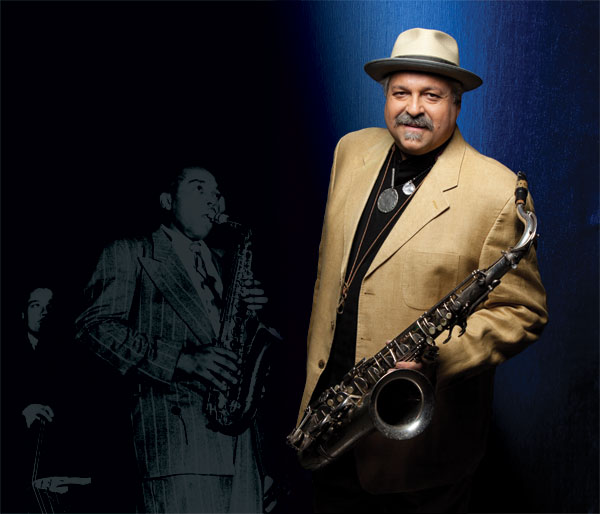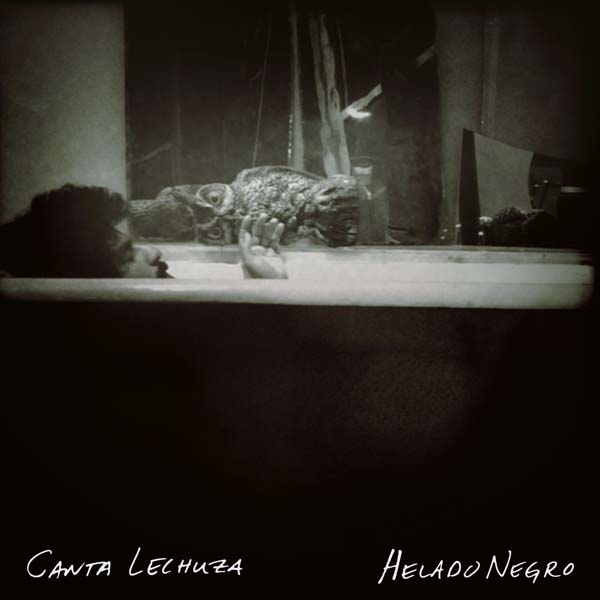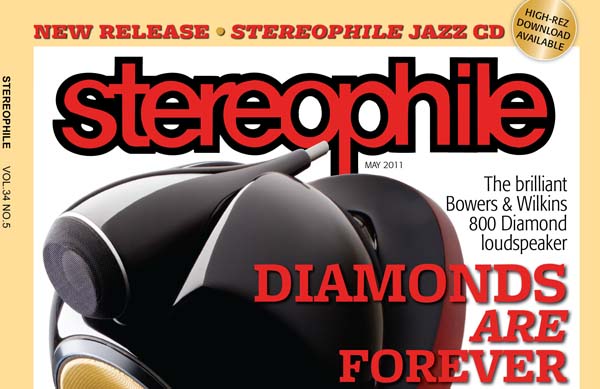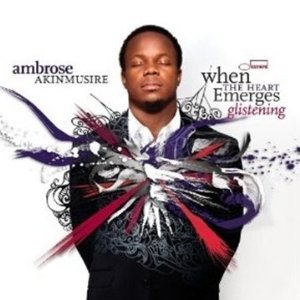LATEST ADDITIONS
Recording of January 1989: Live and Let Live!
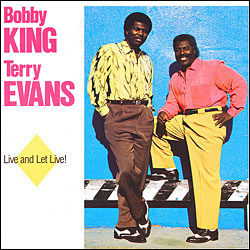 BOBBY KING & TERRY EVANS: Live and Let Live!
BOBBY KING & TERRY EVANS: Live and Let Live!Rounder 2089 (LP), CD 2089 (CD). Larry Hirsch, eng.; Ry Cooder, prod. AAA/AAD. TT: 44:42
If you've heard a Ry Cooder album in the last 12 years, you've heard Bobby King and Terry Evansthey're the gorgeously voiced gospel/R&B singers who've backed up Ry while he's learned to sing in publicand from whom he can't help but have learned a lot. To crib from the liner notes, King is from a Louisiana gospel background, while Evans sang R&B in Mississippi. Their music together is a seamless blend of the best of both sides of the churchyard gate, smack dab in the middle of the strongest undercurrents of American music. Virtually every tune is a gem, but "Let Love Begin," so warm and lovingly sensual it'll melt your speakers, and the best version I've ever heard of "Dark End of the Street," are instant classics. "Saturday Night" has a hint of sprung Cajun rhythm, and "Let Me Go Back to the Country" has that vital feel of a pick-up band one by one sitting down to sit in, music made for the sheer joy of singing and playing. Only "Bald Head," another misogynistic Cooder tune, falls flat, though not for lack of trying by King & Evans.
The Historic Beyerdynamic DT 48 E (25 ohm)
Yes, historic. The Beyerdynamic DT 48 model has been in continuous production in a variety of forms since 1937. That's pretty historic ... I can't even remotely think of another headphone like that.
Let's take a look ...
Helado Negro: Canta Lechuza
The Fifth Element #65
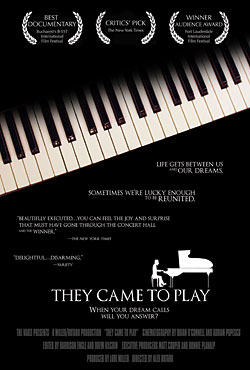 This month I am writing about the Loudness Wars! But first a DVD, They Came to Play. The quest, or the hero's journey, has been a major theme of literature for as long as there has been literature. From the epic of Gilgamesh to The Adventures of Huckleberry Finn to Moby-Dick to The Lord of the Rings, the quest's plot trajectory has remained pretty much consistent: be confronted by a challenge; leave home; bond with a new friend; survive climactic showdown; discover true self.
This month I am writing about the Loudness Wars! But first a DVD, They Came to Play. The quest, or the hero's journey, has been a major theme of literature for as long as there has been literature. From the epic of Gilgamesh to The Adventures of Huckleberry Finn to Moby-Dick to The Lord of the Rings, the quest's plot trajectory has remained pretty much consistent: be confronted by a challenge; leave home; bond with a new friend; survive climactic showdown; discover true self.
That last one is the payoff. Great literature allows us to benefit vicariously from the hero's hard-won self-knowledge. But without question, the thrills and chills and the cliff-hanging moments are what have put the fannies in the theater seats, from ancient Athens to your local megaplex.
VTL MB-450 Series III Signature monoblock power amplifier
Now On Newsstands: Stereophile, Vol.34 No.5
Let’s take a look:
Musical Fidelity V-Link USB-S/PDIF converter
Listening #100
Those used to be just fun things to say. But now I worry they might be true, if only because thinking, reading, and writing about domestic audio have, of late, brought with them the chalky aftertaste of guilt.
Ambrose Akinmusire, Part 2
Unlike many of the best young lions of recent years, Akinmusire is not aiming to expand the realm of jazz to include hip-hop, classical, Latin, or whatever. He is steeped in “the jazz tradition” and aims to deepen his stance within itbut his approach doesn’t seem the slightest bit retro. His trumpet tone, as noted earlier, has traces of Clifford Brown and Booker Little; but how he shapes that soundas a player, a composer-arranger, and an ensemble-leaderis thoroughly distinctive. . .

